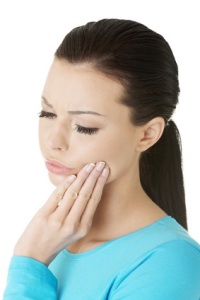This time of the year is tough, the holidays are over, flu season is in full effect and tax season is  looming. This means stress, and one thing that I’ve found in dentistry is that along with stress we often get TMJ and facial pain. How do we discern between run of the mill stressed induced muscle and jaw pain as opposed to sinus pain or even worse tooth or nerve pain?
Dental pain can come from a variety of sources and the solution can vary from simple to complex depending on the issue. Whether the pain is from a cavity, exposed root surface, damage to the nerve, sinus pressure, tender jaw muscles or the ligaments surrounding the tooth, can best be diagnosed by a dentist. If you are experiencing any of these kinds of symptoms for more than 2-3 days please call your dental practitioner for advice.
Each of these types of dental pain may be confused with each other. But, in a scenario where the pain is not from a cavity or an insult to the dental nerve, why do we feel pain at all?
looming. This means stress, and one thing that I’ve found in dentistry is that along with stress we often get TMJ and facial pain. How do we discern between run of the mill stressed induced muscle and jaw pain as opposed to sinus pain or even worse tooth or nerve pain?
Dental pain can come from a variety of sources and the solution can vary from simple to complex depending on the issue. Whether the pain is from a cavity, exposed root surface, damage to the nerve, sinus pressure, tender jaw muscles or the ligaments surrounding the tooth, can best be diagnosed by a dentist. If you are experiencing any of these kinds of symptoms for more than 2-3 days please call your dental practitioner for advice.
Each of these types of dental pain may be confused with each other. But, in a scenario where the pain is not from a cavity or an insult to the dental nerve, why do we feel pain at all?
- TMJ and facial pain that come from chronic clenching and grinding can be elicited in various ways. It may be pain and tenderness of the muscles that cause our jaw to open and close. The strain of clenching and grinding, whether consciously or subconsciously done, can cause inflammation and irritation of those muscles and may result in pain during day to day functions like eating and talking.
- Another possibility is tenderness elicited from inflammation of the small ligaments holding the teeth into the bone. With overuse or over-stimulation these small ligaments become inflamed and sore which can cause pain with use or pressure on the tooth.
- Often times chronic clenching and grinding may be followed by mild recession of the gum tissue exposing a portion of the tooth’s root surface. This surface, which is normally covered by a layer of bone and gum tissue, once exposed is very sensitive to hot, cold, as well as touch. Over time this surface can desensitize however, this process may take up to 2 months.

Leave a Reply
Want to join the discussion?Feel free to contribute!